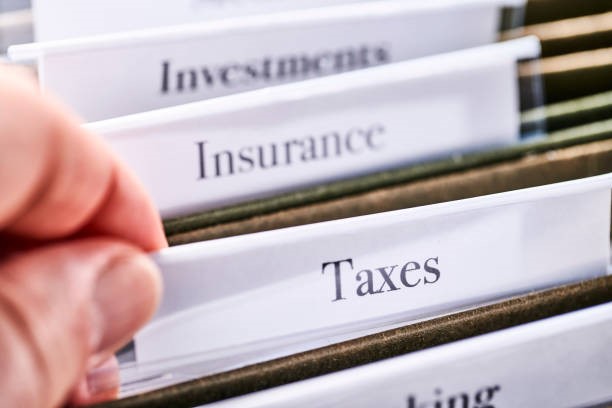
Maintaining Your Financial Records
An important part of managing your personal finances is keeping your financial records organized. Whether it's a utility bill to show proof of residency or a Social Security card for wage reporting purposes, there may be times when you need to locate a financial record or document.
By taking the time to clear out and organize your financial records, you'll be able to find what you need exactly when you need it.
What should you keep?
One of the first steps in determining what records to keep is to ask yourself, "Why do I need to keep this?"
Documents you should keep are likely to be those that are difficult to obtain, such as:
- Tax returns
- Legal contracts
- Insurance claims
- Proof of identity
On the other hand, if you have documents and records that are easily duplicated elsewhere, such as online banking and credit-card statements, you probably do not need to keep paper copies.
What about Carpenters’ benefits?
As a Nor Cal Carpenter, it’s important to keep your pay stubs, and regularly review your work history to make sure all hours have been applied to your benefits. Make a habit of comparing your check stubs with your work history, available in your Benefits Portal or Quarterly Statement. Clerical errors can happen, and you want to make sure you are paid accurately for your hard work. In most cases, you have up to a year to correct an error.
How long should you keep your records?
A good rule of thumb is to keep financial records and documents only as long as necessary. For example, you may want to keep ATM and credit-card receipts until you've reconciled them with your bank and/or credit card statement. On the other hand, if a document is legal in nature and/or difficult to replace, you'll want to keep it for a longer period or even indefinitely.
Some financial records may have more specific timetables. For example, the IRS generally recommends that taxpayers keep federal tax returns and supporting documents for a minimum of three years up to seven years after the date of filing. Certain circumstances may even warrant keeping your tax records indefinitely.
Listed below are some recommendations on how long to keep specific documents:
Records to keep for one year or less:
- Bank or credit union statements
- Credit card statements
- Utility bills
- Auto and homeowners insurance policies
Records to keep for more than a year:
- Tax returns and supporting documentation
- Mortgage contracts
- Property appraisals
- Annual retirement and investment statements
- Receipts for major purchases and home improvements
Records to keep indefinitely:
- Birth, death, and marriage certificates
- Adoption records
- Citizenship and military discharge papers
- Social Security card
These are general guidelines, and your personal circumstances may warrant keeping these documents for shorter or longer periods of time.
Out with the old, in with the new
An easy way to prevent paperwork from piling up is to remember the phrase "out with the old, in with the new." For example, when you receive this year's auto insurance policy, discard the one from last year. It's a good practice to review your files at least once a year to keep your filing system on the right track.
Finally, when you are ready to get rid of certain records and documents, don't just throw them in the garbage. To protect sensitive information, you should invest in a good quality shredder to destroy your documents, especially if they contain Social Security numbers, account numbers, or other personal information.
Where should you keep your records?

Any organized filing system can work for most documents, while important documents should be kept in a fire-resistant file cabinet, safe or safe deposit box.
To reduce clutter, you might consider electronic storage for some of your financial records. Save copies of online documents or scan documents. You'll want to keep backup copies on a portable storage device or hard drive and make sure that your computer files are secure.
You could also use a cloud storage service that encrypts your uploaded information and stores it remotely. If you use cloud storage, make sure to use a reliable company that has a good reputation and offers automatic backup and technical support.
Special Resources for Nor Cal Carpenters
Carpenter Funds Administrative Office is here to help. As a Nor Cal Carpenter, you have access to web-based tools and resources, including:
- Carpenter Funds Benefits Portal. For your Carpenter Funds benefits, instead of keeping your Quarterly Statements, your Benefits Portal safely maintains all of your recent benefits information – and it’s accessible anytime.
- SmartMap Vault. Carpenter Funds Administrative Office has partnered with Pensionmark to help Nor Cal Carpenters understand and manage their finances. Through their SmartMap program, you have access to a suite of financial wellness resources, including a cloud-based virtual “Vault”, where you can safely store your most important financial documents and contacts, accessible 24/7. To sign up, just visit
https://smartmap.pensionmark.com/personal-financial-portal.
Consider creating a personal document locator
Another option for organizing your financial records is to create a personal document locator, which is simply a detailed list of where you have stored your financial records. This list can be helpful whenever you are trying to locate a specific document and can assist your loved ones in locating your financial records in the event of an emergency. Typically, a personal document locator will include the following information:
- Personal information
- Personal contacts (e.g., attorney, tax preparer, financial advisor)
- Online accounts with username and passwords
- List of specific locations of important documents (e.g., home, office, safe)
Original Source Material Prepared by Broadridge Advisor Solutions Copyright 2021.
